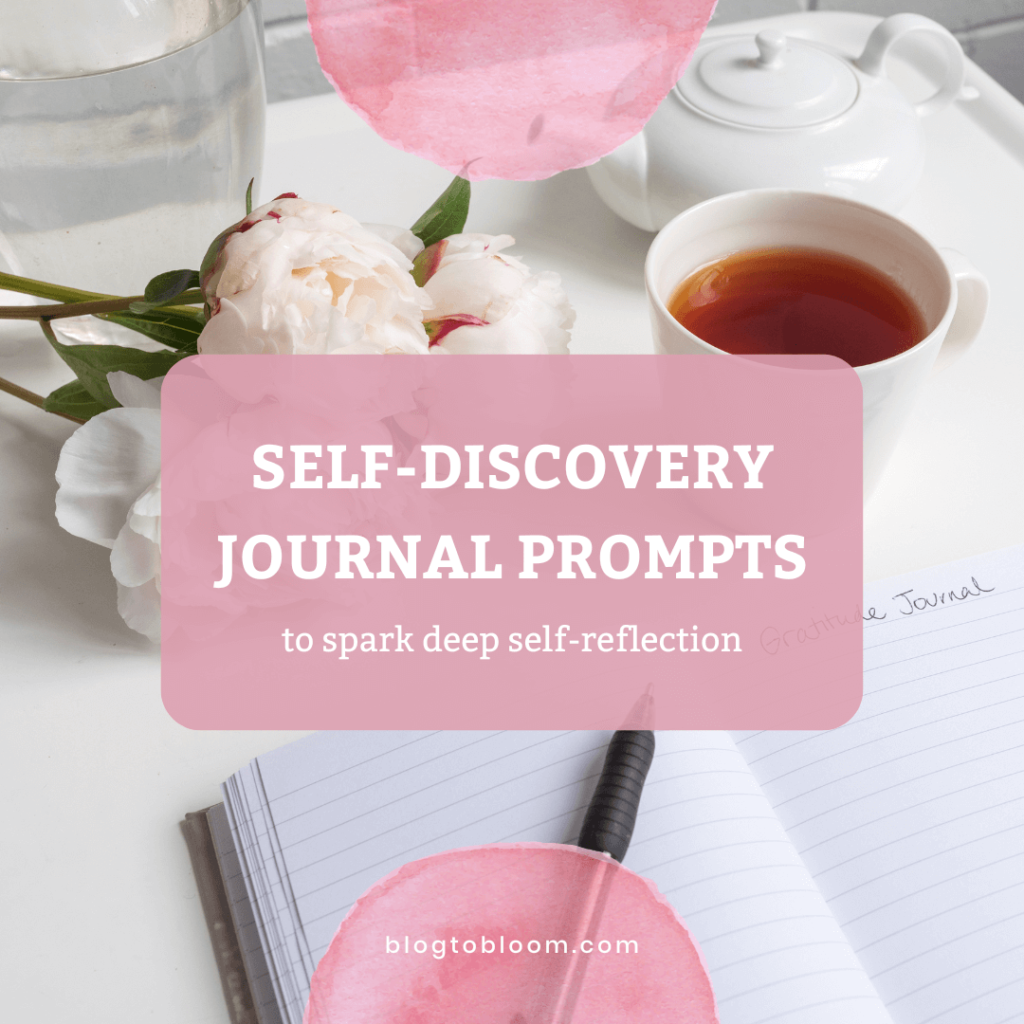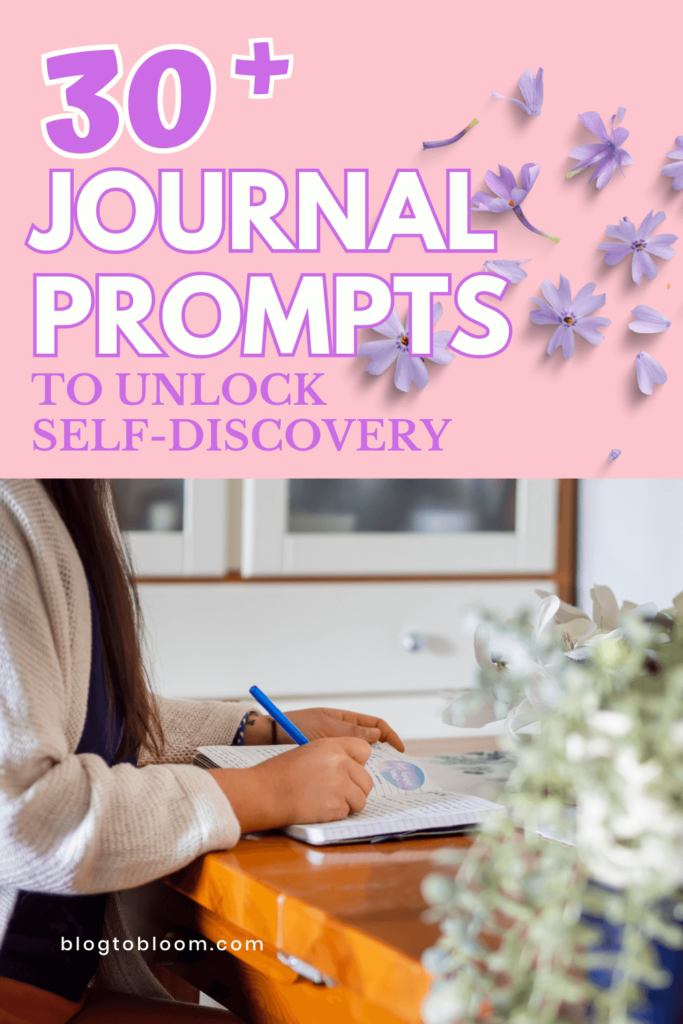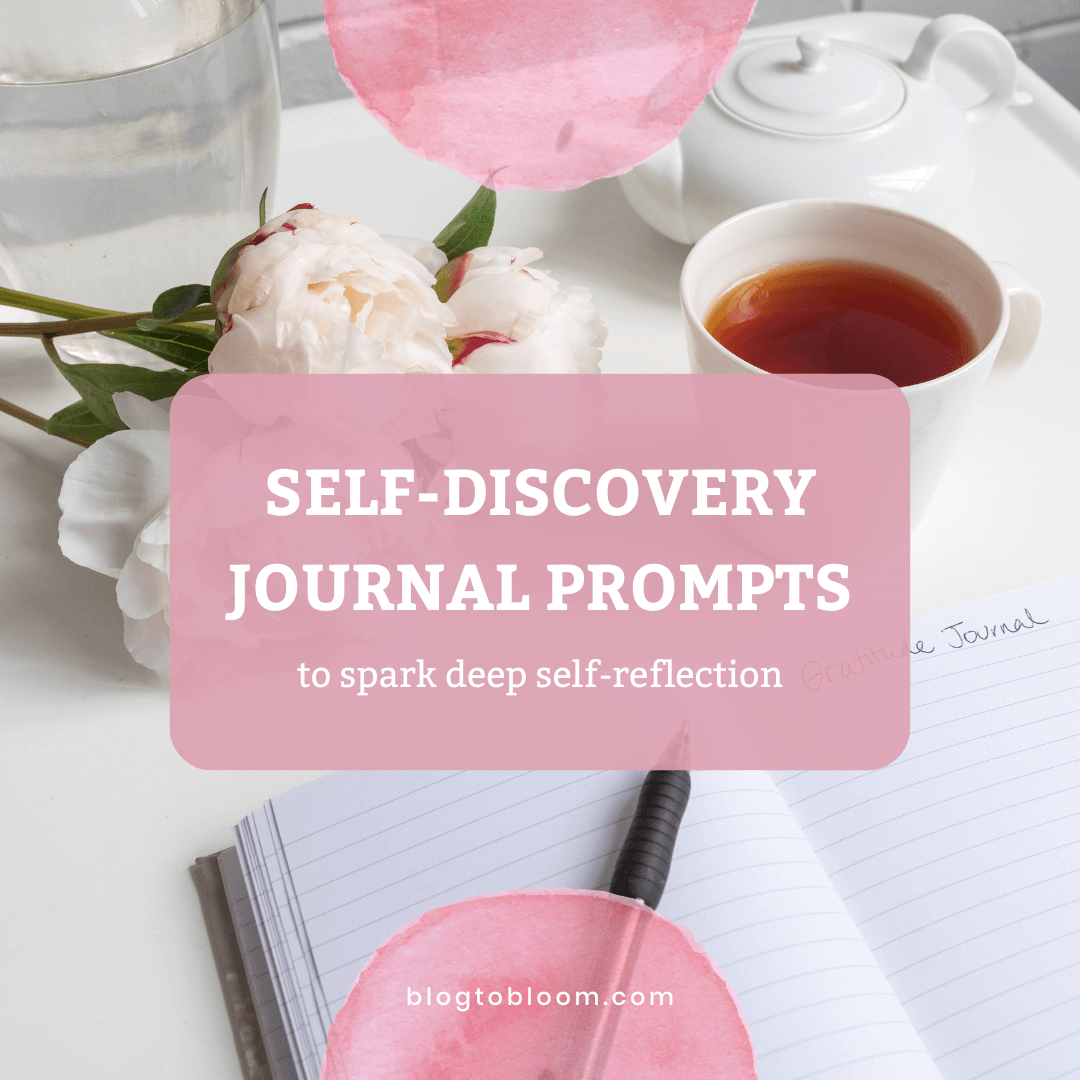Contents
- Journal Prompts for Self-Discovery
- Journaling Ideas for Self-Discovery
- What Should I Journal for Self-Discovery?
- How Do You Discover Yourself Through Journaling?
- Conclusion
Journal prompts for self-discovery have become invaluable tools for individuals seeking a deeper understanding of themselves. In this post, we’ll delve into the world of journaling, exploring prompts, ideas, and methods that can help you embark on a transformative journey of self-discovery.
Journal Prompts for Self-Discovery
Journaling is not merely a method of recording thoughts; it is a transformative practice that unravels the layers of your inner self. Let’s delve into a set of journal prompts designed to spark deep self-reflection and understanding:
Unveiling Core Values
Consider your upbringing, experiences, and personal journey. What values are time-tested? Identify the principles that influence your choices and actions. Here are several prompts for you to consider:
1. What are the most important things in your life that never seem to change?
2. Can you think of moments when these important things influenced your choices?
3. What are the ideas that guide how you decide and act in different situations?
4. Who were the influential figures in your upbringing that may have shaped your values?
5. What specific experiences or events have contributed to the shaping of your core values?
6. List three values that have consistently guided your decisions and actions.
7. Where do you see these values manifesting in your daily life?
8. Why do these values resonate with you, and how do they guide your decision-making?

Moments of Soulful Resonance
Beyond the obvious, explore the subtle moments that resonate with your soul. Is it the sound of rain tapping on your window, the laughter of loved ones, or the solitude of a quiet morning? Reflect on these instances that make you feel most alive with the following prompts:
9. What are some small moments that make you really happy or alive?
10. Who are the people involved in these moments?
11. When do these moments typically occur in your life?
12. Can you recall times when the sound of something or someone made you feel joyful?
13. Where do you find peace and solitude? How does it make you feel?
14. Why do these moments hold significance for you?
Mapping Time Priorities
Create a visual representation of your daily or weekly schedule. How are you currently allocating your time? Are your daily or weekly activities in alignment with your priorities and values? Do you spend your precious time on what matters most? Consider adjustments if necessary.
15. How do you spend your time each day, and what takes up the most hours?
16. Who are the key individuals or activities that occupy your time?
17. What activities dominate your schedule, and do they align with your priorities?
18. Are you spending time on things that really matter to you?
19. When are you most productive or engaged in activities aligned with your values?
20. Where could you make changes to make more time for the important stuff?

Ownership of Thoughts and Emotions
Delve into your inner landscape and discern the origin of your thoughts and emotions. Ask yourself the following questions to identify what truly belongs to you and distinguish between societal expectations, external influences, and your authentic self.
21. Who or what influences how you think and feel?
22. Are your thoughts and feelings really yours, or are they influenced by others?
23. How can you tell when a thought or feeling is truly yours?
24. How can you foster a deeper understanding of your authentic thoughts and emotions?
Exploring Truth and Authenticity
Building on the prompts suggested in the previous section, examine the authenticity of your beliefs. What feels true to you? Challenge preconceived notions and explore the alignment of your beliefs with your genuine self.
25. What are the beliefs that just feel right to you, and why?
26. Who in my life may challenge or support the authenticity of my beliefs?
27. When do you find yourself questioning or reaffirming your authentic beliefs?
28. Can you challenge beliefs that don’t feel true anymore?
29. Why is it important to be true to yourself and your beliefs?
Defining a Meaningful Life
Move beyond a singular life purpose and focus on creating a life filled with meaning. Create a narrative that aligns with your aspirations and values, outlining actionable steps to manifest this meaningful life.
30. What do you want to achieve, inspire, or leave behind in your life?
31. How can your actions align with your aspirations and values?
32. Why is it important to live a life filled with meaning?

Journaling Ideas for Self-Discovery
Beyond specific prompts, various journaling techniques can enhance your self-discovery journey:
1. Free Writing: Set a timer and write without constraints or self-editing. Allow your thoughts to flow freely, revealing insights that may surprise you.
2. Stream of Consciousness: Write whatever comes to mind without structure. This can unveil subconscious thoughts and emotions.
3. Bullet Journaling: Create concise lists, tracking your thoughts and feelings. This organized approach can highlight patterns over time.
4. Artistic Expression: Combine words and visuals. Doodle, draw, or use colors to represent your emotions and experiences.
5. Letter to Your Future Self: Write a letter to the person you aspire to become. Outline your goals, dreams, and the steps you’ll take to achieve them.
What Should I Journal for Self-Discovery?
Choosing what to journal about can be overwhelming. Here are some guiding principles for you to consider:
1. Follow Your Intuition: Trust your instincts. If a particular topic or feeling comes to mind, explore it in your journal.
2. Focus on Growth: Journal about your personal and professional development. Track achievements, challenges, and the lessons you’ve learned.
3. Document Milestones: Celebrate achievements, big or small. Reflecting on successes can boost confidence and motivation.
4. Express Your Emotions: Journaling is a safe space to express your feelings. Explore and acknowledge your emotions, be it joy, frustration, or sadness.
How Do You Discover Yourself Through Journaling?
Journaling is a powerful tool for self-discovery. Here’s how you can make the most of this transformative process:
1. Consistency is Key: Make journaling a regular habit. Daily or weekly entries can provide continuity and reveal patterns over time.
2. Be Honest with Yourself: Embrace vulnerability and honesty in your writing. Authentic self-expression is crucial for self-discovery.
3. Reflect on Patterns: Review past entries to identify recurring themes, emotions, or challenges. This reflection can offer valuable insights into your journey.
4. Celebrate Progress: Recognize and celebrate the growth you’ve achieved. Journaling allows you to track your evolution over time.
Conclusion
Journaling is an effective self-discovery tool. We can enhance our transformative self-exploration journey with thoughtful journal prompts and reflective practices. May your journal become a mirror reflecting the beautiful and evolving landscape of your true self. Happy journaling!
Save for later ⤵️


Leave a Reply